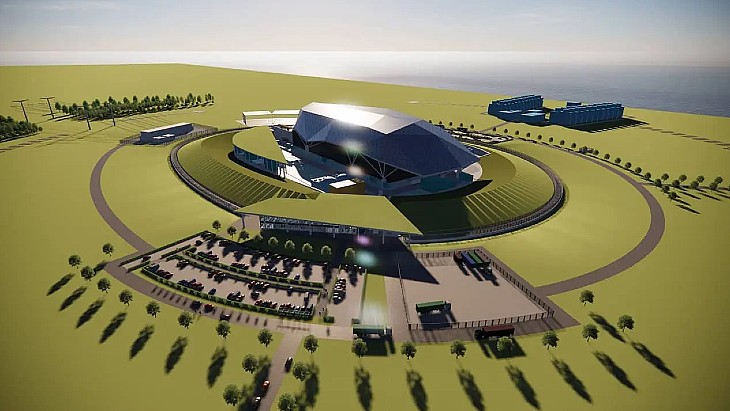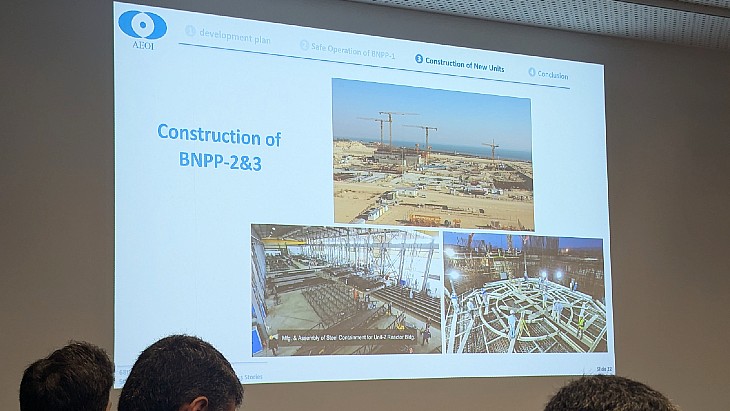Hyundai E&C says Kozloduy signals South Korea's nuclear resurgence
.jpg)
As well as giving approval for the talks to begin, parliamentarians also set out a series of requirements for the Bulgarian side in the negotiations, according to the Bulgarian News Agency (BTA).
These included:
- the requirement to be offered a fixed price
- construction of the first block within 60 months
- construction of the second block within 54 months
- 30% of the project to be taken by Bulgarian contractors
Last week Kozloduy NPP - New Builds announced that South Korea's Hyundai Engineering & Construction (Hyundai E&C) was deemed, by a commission reviewing the expressions of interest, to have been the only one of the five candidates to have met the requirements for the construction and commissioning of the two new Westinghouse AP1000s.
The others to have been interested in the project were Fluor BV, Bechtel Nuclear Power Company Limited, a consortium led by China National Nuclear Corporation Overseas and partner China Energy Engineering Group Tianjin Electric Power Construction Co, as well as China Energy Engineering Corporation Limited.
According to BTA there was more than three hours of debate, including at least one vote where a call for at least one other bidder - Bechtel - to be reinstated to the process was rejected.
Hyundai E&C said, following the parliamentary approval, that its return to the overseas market after 15 years was a visible reflection of the South Korean government's support for the restoration of the nuclear industry.
A spokesperson said: "The selection as the preferred bidder for the Kozloduy nuclear power plant in Bulgaria will be a signal for the resurgence of the Korean nuclear industry, which has been somewhat stagnant due to the nuclear phase-out policy.” They noted the European Union green taxonomy and said that "as the positive atmosphere toward nuclear energy spreads ... large-scale orders are expected, and we will strive to deliver more orders through multilateral channels as well as participation in Team Korea."
The Bulgarian Parliament has set 15 April as the date by which negotiations on the specific clauses of the contract must have taken place, with the chairman of the Energy Committee looking for a final investment decision to be taken by the middle of 2025. The aim is for the first new unit - unit 7 at Kozloduy - to be operational in 2035 and the second one - unit 8 - to be operational in 2037.
Kozloduy units 1-4 were VVER-440 models which the European Commission had classified as non-upgradeable and Bulgaria agreed to close them during negotiations to join the European Union in 2007. Units 5 and 6 feature VVER-1000 reactors that were connected to the grid in 1987 and 1991, respectively. Both units have been through refurbishment and life extension programmes to enable extension of operation from 30 to 60 years. The 2300 MWe capacity of the two new units would exceed the 1760 MWe capacity of the closed first four units. The Bulgarian government has also said that further units will be needed to replace units 5 and 6 by 2050.
Westinghouse will hold overall Design Authority responsibility for the AP1000 plant, the expression of interest document said.
South Korea has 26 reactors providing about a third of the country's electricity and has long been one of the world's most prominent nuclear energy countries, but in 2017 then President Moon Jae-in introduced a policy of phasing out nuclear power over a period of 45 years. However President Yoon Suk-yeol, elected March 2022, scrapped this policy, and laid out a new energy policy supporting reactor construction and a renewed export push.
_92619.jpg)

_84504.jpg)







_88592.jpg)

